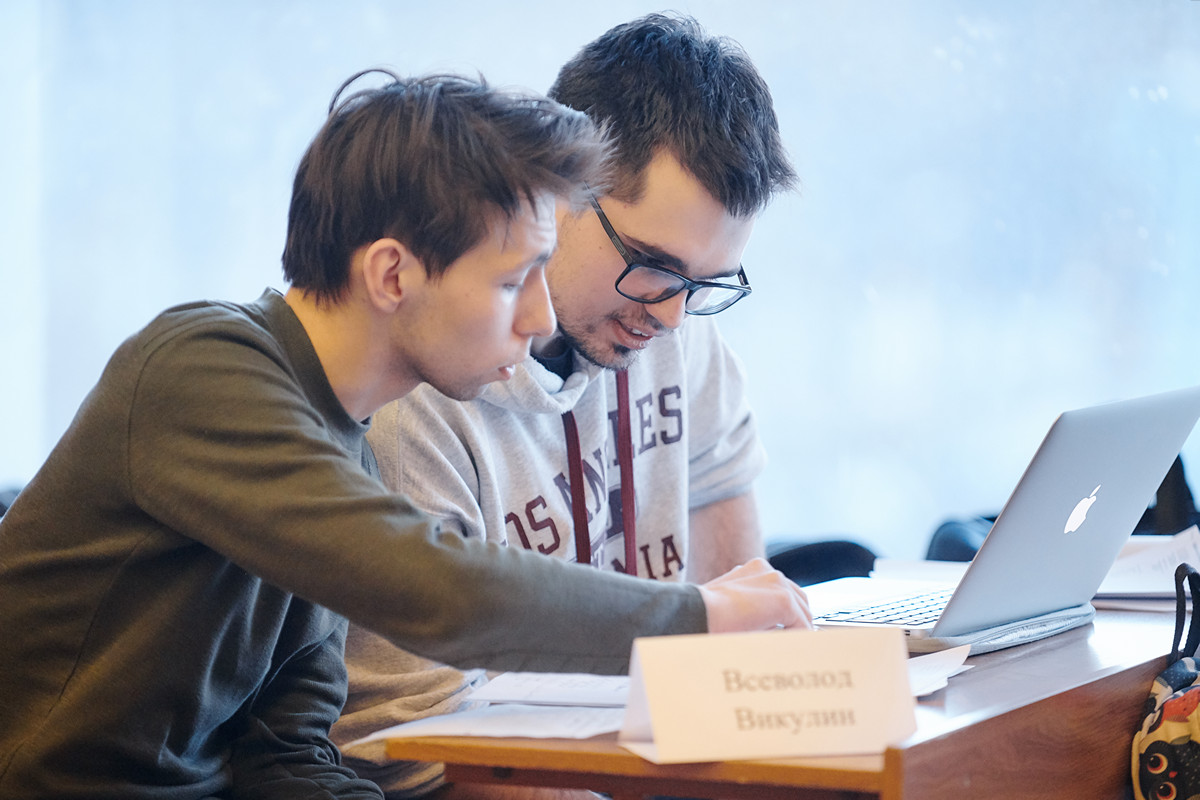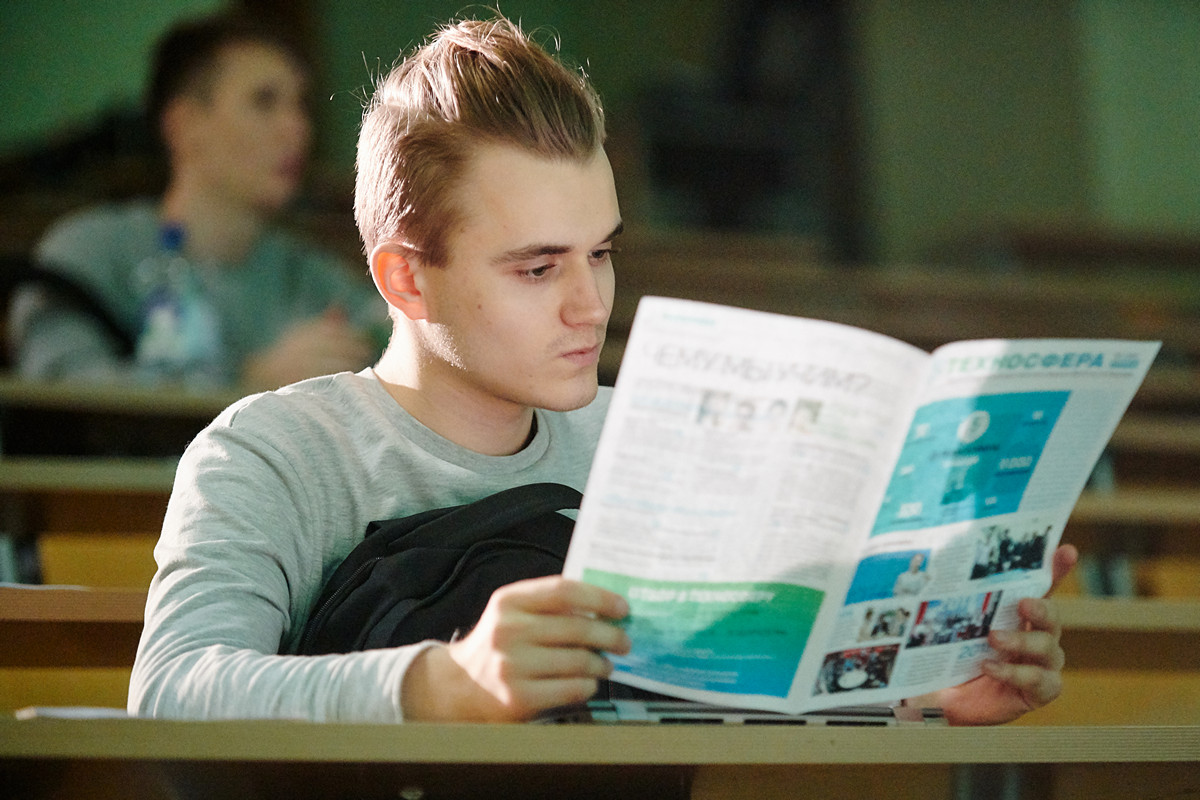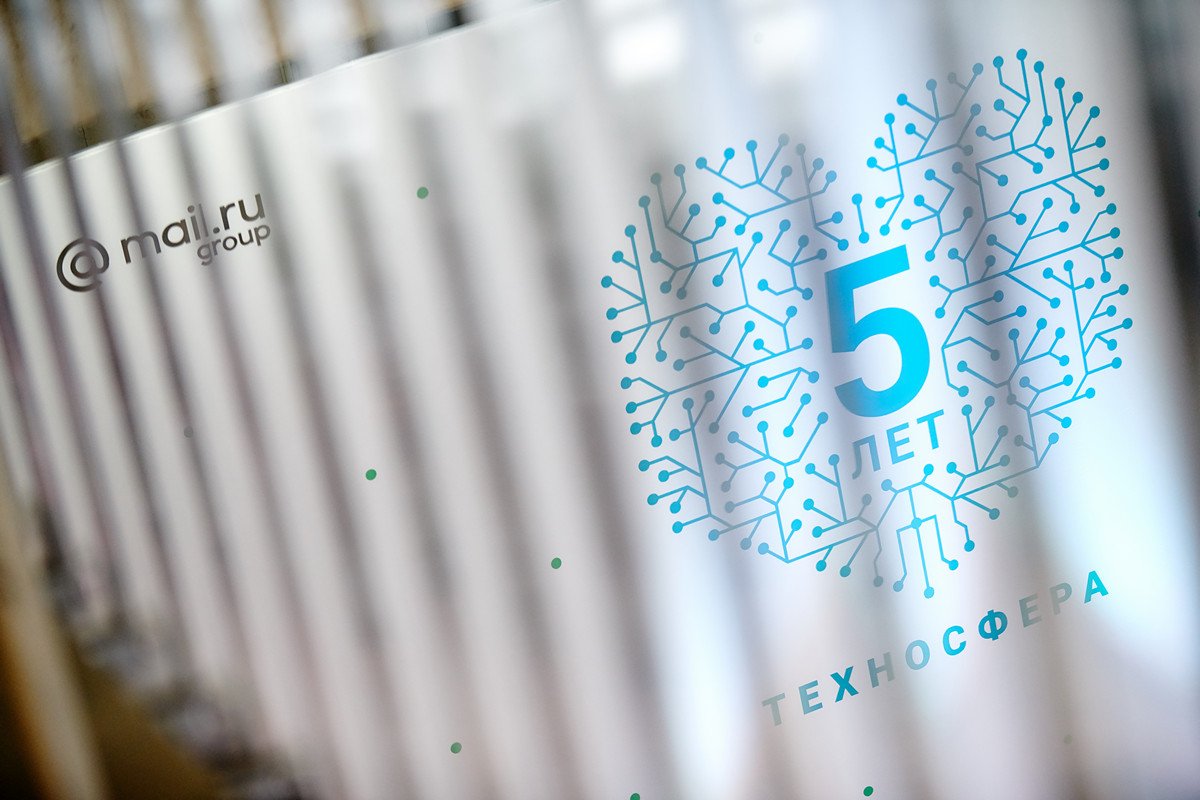In 2017, Vsevolod graduated from the Technosphere, and now he teaches two of its courses: "Machine Learning" and "Neural Networks in Machine Learning". To date, Vsevolod has trained over 160 students. Recall that Technosphere is a joint educational project of Mail.ru Group and the Faculty of Computational Mathematics and Cybernetics of the Lomonosov Moscow State University.

When you were at university, including in the Technosphere, what was the most important factor for an interesting learning for you?
Vsevolod: A good, interesting teacher. It seems to me that even the most boring subject I listened to with interest if it was well presented.
In your opinion, who is responsible for the quality assimilation of the material? Teacher or student?
This is a team game. If the student is not interested in what is being told, then no matter how good the teacher is, it is all meaningless. And the opposite is also true: if the teacher is bad, the quality of teaching will be rather low. The devil is in the details, and I think every subject is different. In more difficult subjects - calculus, algebra - the role of the teacher is great. And if this is Python, for which there are many educational materials on the Internet, then the role of the student is more important here.
Often one teacher teaches several subjects. In such cases, is flexibility in higher education important?
It is very important that the teacher is in trend. It is very bad if a teacher wrote lectures 20 years ago and has been giving the same lectures every year since then. People change, as well as their perception; over time, you need to build the presentation of the material differently. It is important for the teacher to be flexible. And the degree of flexibility depends on the subject. In the Technosphere, disciplines are updated every year, taking into account feedback from students and changes in technology. And there was no flexibility in the university program.
There are always students who cheat and plagiarize. How do you feel about this?
I have not come across plagiarism, but it is tough. I met with cheating both the student and the teacher. Education is that you have to solve the problem yourself, and that the teacher gives you feedback, checking your work. And if you cheated, then you did not receive an educational service. In our country, few people perceive education as a service. For many, this is a kind of duty: you graduate from high school, go to the university and blow your trumpets, otherwise you will go to the army. Little is written off in the Technosphere. People do not come there because of the stick, but because they want to learn.
When you were a student yourself, what was considered cool when teaching a technical profession?
A cool student for me is curious, so that a person is interested in learning more about the subject, and not limited to what is asked for the test. It is important for the student to endure homework, hardship and hardship. And I would like a good sense of humor to make it more fun to take the course. That is, it is a student who is interested and not “painful” to study. And he also has time to have some fun.

Now you are teaching. How do you perceive yourself in this role?
I try to have a formal dialogue with students. First, the instructor is a mentor and expert. The proportions depend on the specifics of the subject. In calculus, you are more of an expert, because the subject is complex, it is difficult for students to figure it out on their own. And if you teach Python, then you have more of a mentor: you suggest the path to students, additional sources of knowledge. In the Technosphere, I am more of a mentor than an expert.
What do you think is the best way to teach people today?
I have a very simple, honest method: I compose my lectures from fragments of articles and courses, and I try to present them as a mosaic of references to various literature. I try to make my lecture not a monolith, but a great reference on the current situation in this discipline. I emphasize the most important and interesting things, suggest where some materials are better presented so that students can read on their own again.
Today it is customary to separate academy and practice. What is more important for education today - study, science, practice?
I don't really understand how you can divide into science, study and practice. You cannot explain the discipline at the modern level if you do not add the latest scientific achievements. And if the guys are not ready yet, then you can talk about something in the later courses.
I also do not separate practice from teaching. As we go through a discipline, students naturally have questions about practical application. And we immediately discuss them.
Have you noticed any changes in teaching over the past few years?
Everything goes into a remote format. And in the face-to-face format, I did not notice any special changes. Communication is structured differently, the hand is not pulled in the audience. But globally, almost nothing has changed.
What about interacting with students?
We have a chat on Slack. Face-to-face communication has never been the main component of our communication.
Now the most interesting thing is the future of education. Do you have a feeling or idea about some trend in education that was not there a year ago? Can you describe what education will look like in 3-5 years?
Now the trends are digitalization and distance learning. Before, I had no idea that lecturers at Moscow State University could read Zoom. There seems to be no reason why education should return to offline format.
Second, I clearly see the discretization of education. Previously, you had to study for 5.5 years, so the Bologna system was introduced and a four-year bachelor's degree appeared. I think this is a sane idea. You don't need 4 years of bachelor's degree to become a Python developer.
And the third way of development is the personalization of education, different ways of education for different people. It used to be that you had a curriculum written by smart people. You have to study for 6 years and you cannot turn anywhere. Now people are already starting to choose their own path, some educational institutions allow you to compose a set of courses at will.

Above we talked about the signs of a good student. What will change in the future?
It seems to me that globally everything will remain about the same, people will change in five years. But on the other hand, I see that the role of personal contribution to my education, the ability to independently seek information and absorb it, is growing. Students will develop more and more self-education. The global need for experts will decrease as more people become able to learn and do a lot on their own.
Now the Technosphere is going beyond the walls of the university. Previously, only MSU students could study there. And now a set is open for everyone. Are there any advantages or disadvantages to this?
There are many motivated, smart guys not from Moscow State University, and not students at all, who are very interested in this. Globally, idealistically, the vector is absolutely correct.
Is it better not to be a conservative, and conservatives will have no place in the education of the future?
It will, but it will be hard for them. They will grumble and grumble, which was better before. When I wrote with chalk on the blackboard, everything was fine. And now I'm writing with a mouse on a tablet, and it's wrong. As if they understood better with chalk.